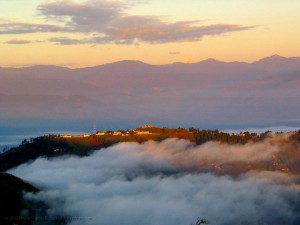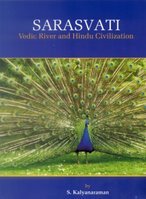Indic Studies Foundation (I.S.F.)

>> Indic Studies Foundation, California <<
a non profit Organisation, and
Akhila Bhartiya Itihas Sankalan Yojnaa
Consensus of ICIH-2009, January 9-11, 2009 at IIC, New Delhi (Conference on Indian History, Geopolitics, and Civilisation)
The conference was convened to have a cross-pollination of ideas on various facets of Indic studies like history, culture and geopolitics and related topics. The overriding purpose is to diagnose the flawed representation of Indian history and to map the correct mechanism for presenting true history on rational basis founded on authentic facts. It also discussed ways and means to delineate the appropriate and correct path for translating the ideas to workers at ground level.
The ICIH-2009 made clear that:
1. More and more people are realising that Indian history had been distorted by Colonial-Missionary historians, and that it has been misrepresented by some motivated historians in post-Colonial period. Steps should be taken to remove these distortions.
2. Current history, as taught in academic institutions, is not borne out by archaeological and other scientific evidence.
3. The myth that India lacked historical agency, created by Hegel and propagated by misinformed historians, is incorrect. India has a sense of history and historical tradition going back to Rigvedic times. It developed in many phases and in various forms down to the early medieval period, but it received set back due to British control on Indian knowledge system.
4. The periodization of Indian history is wrong because it does not reflect the twists and turns of Indian spirit occurring in different epoch of its long history.
5. A correct idea of ‘India, i.e. Bharata’ is essential for understanding Indian history.
6. The chronology of India hitherto accepted is wrong. It needs to be corrected.
7. The delegates commit themselves to provide this correction on the basis literary, archaeological, geological, scientific, linguistic, genetic, and other kinds of evidence.
If Indian spirit and psyche is properly understood, in its correct perspective of past present and the future, India can play its proper historical role on world stage and provide humanity the vision of peace and brotherhood so badly needed today. Spiritualization of human race is, in fact, the theme of Indian way of life, the burden of her eternal songs, backbone of her existence, the foundation of her being and the raison d’etre of her very existence.
Dhanyavad
Dr. Kosla Vepa , Director Indic Studies Foundation
Prof. Shivaji Singh, Chairman of the Conference

- > Sarasvati-Sindhu civilization (c. 3000 B.C.) <
- > Courtesy: Dr.S.Kalyanaraman, Annamalai University
- > Sarasvati – WIKIpedia, ancient vedic culture <
*************************************
Objective
The objective of this article is to promote an understanding of and further researches into delineating the courses of the `lost‘ Sarasvati river from Siwalik ranges to the Rann of Kutch (sAgara) and to gain deeper insights into an ancient civilization that flourished on the Sarasvati and Indus river valleys circa 3000 BC.
This work substantiates the insights provided in N. Mahalingam’s article in Tamil which appeared in Amuda Surabhi, Deepavali issue, 1995: carittirangaLai uruvAkkiya sarasvati nadi (sarasvati river which created histories), citing the work done by Swami sAkyAnanda of advaita ashram, Trichur affirming that north-western region nurtured by the Sarasvati river is the ancient civilization which is the heritage of South Asia.
The intent is to circulate this to all scholars interested in exploring further into the ancient cultures which flourished on the Sarasvati-Sindhu river valleys.
Comments are closed.